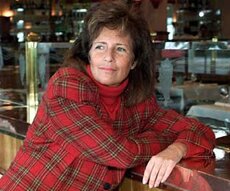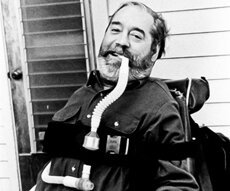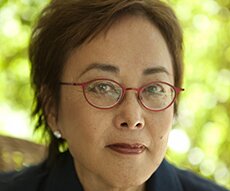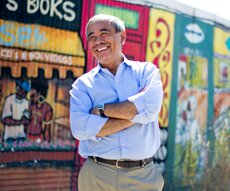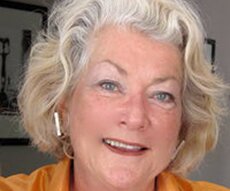 Despite hardships growing up in El Salvador, Broz showed an insatiable hunger for learning that has defined her entire life. She immigrated to San Francisco in 1943, eventually graduated from Berkeley, and became a teacher in California. After retiring in the late 1980s, she decided to give back to the country “that shaped my soul.” At age 65 — amidst a raging civil war — she started a school under the trees in the conflict-ridden community of El Barío. Drawing support from her Quaker community, including money for books, uniforms, and computers, the El Salvador Projects (the program’s current name) has opened more schools serving some of the country’s poorest children and expanded its focus to sending the very brightest students to college. Perhaps contemplating the difference one person can make, Broz wrote in a poem, “I thought I was a speck of dust dancing along a ray of sun. I thought I was a child of chance. But now I know I am as wide, as brown, as warm as the earth, mother of all, and the sun’s mate.” Read more about Broz, or follow the project on Facebook.
Despite hardships growing up in El Salvador, Broz showed an insatiable hunger for learning that has defined her entire life. She immigrated to San Francisco in 1943, eventually graduated from Berkeley, and became a teacher in California. After retiring in the late 1980s, she decided to give back to the country “that shaped my soul.” At age 65 — amidst a raging civil war — she started a school under the trees in the conflict-ridden community of El Barío. Drawing support from her Quaker community, including money for books, uniforms, and computers, the El Salvador Projects (the program’s current name) has opened more schools serving some of the country’s poorest children and expanded its focus to sending the very brightest students to college. Perhaps contemplating the difference one person can make, Broz wrote in a poem, “I thought I was a speck of dust dancing along a ray of sun. I thought I was a child of chance. But now I know I am as wide, as brown, as warm as the earth, mother of all, and the sun’s mate.” Read more about Broz, or follow the project on Facebook.
Education, Public Service and Activism


